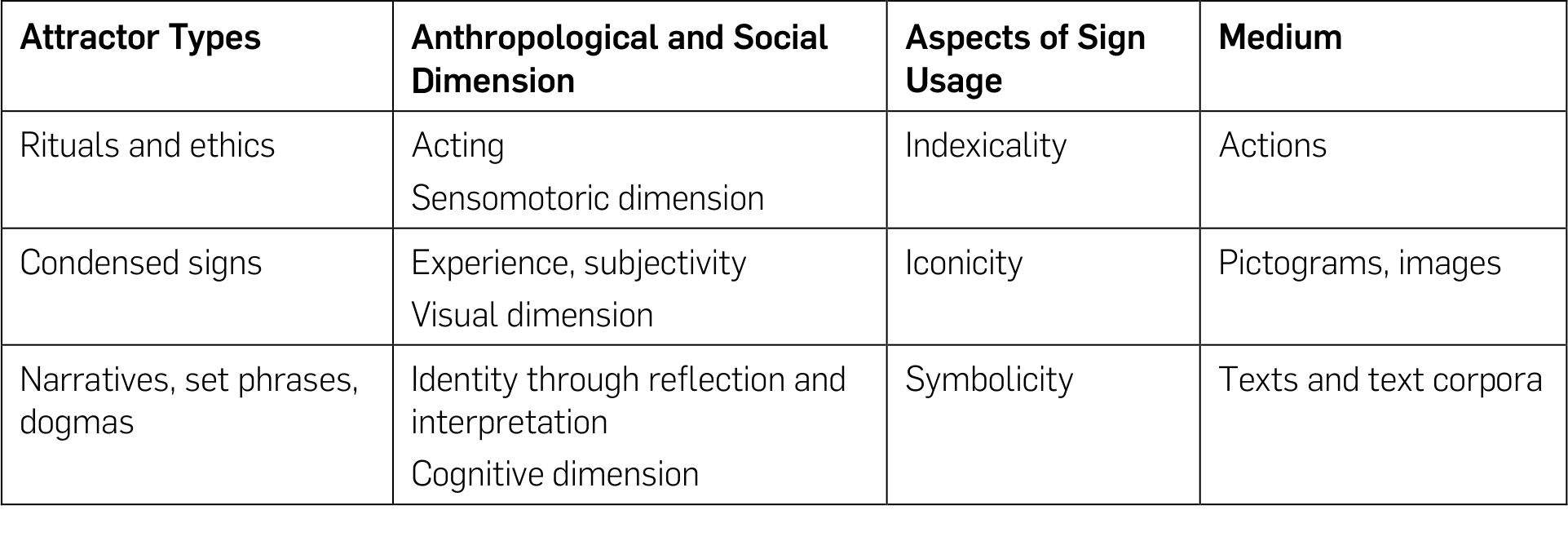Focus Group 'Attraction'

The focus group 'attraction' examined different models of the densification and diffusion of religious traditions. The group drew on the intense discussion of attractors in the field of chaos theory and of cultural operators, its social science equivalent, which had been introduced by Lévi-Strauss.
These models have been imported and applied to the study of dynamics in the history of religions. Especially the role of attractors for religious contacts had been under scrutiny. 'Attraction' is not to be understood as a psychological category, as a marker of intentionality, or as an identity factor within subject-object dialectics. Attraction describes a dynamic moment in a situation of religious contact, i. e. it has to be seen in the context of densification, demarcation and repulsion of religious traditions. The innovativeness of this approach lies in the concentration of the scientific connotations of the term 'attraction'. In German this manifests in the differentiation of Attraktion from Attraktivität (ca. attractiveness). With the perspective on attraction endogenous factors in the dynamics of the history of religions come into the spotlight of research, without neglecting the influence of external factors.
A major result of focus group 'attraction' is a typology of attractors in religious contacts. It is based on three criteria: the anthropological dimension, aspects of sign usage, and media.

The subject of the focus group has also been the topic of two major international conferences at the Käte Hamburger Kolleg in 2010 and 2011. Under the headline of 'Modes and Models of Religious Attraction' processes of attraction have been discussed intensively within the four dimensions of the general relational CERES framework (knowledge, action, materiality, and experience). The discussions and results of these two conferences will be published as a double-volume collection in the 'Dynamics in the History of Religions' series.

